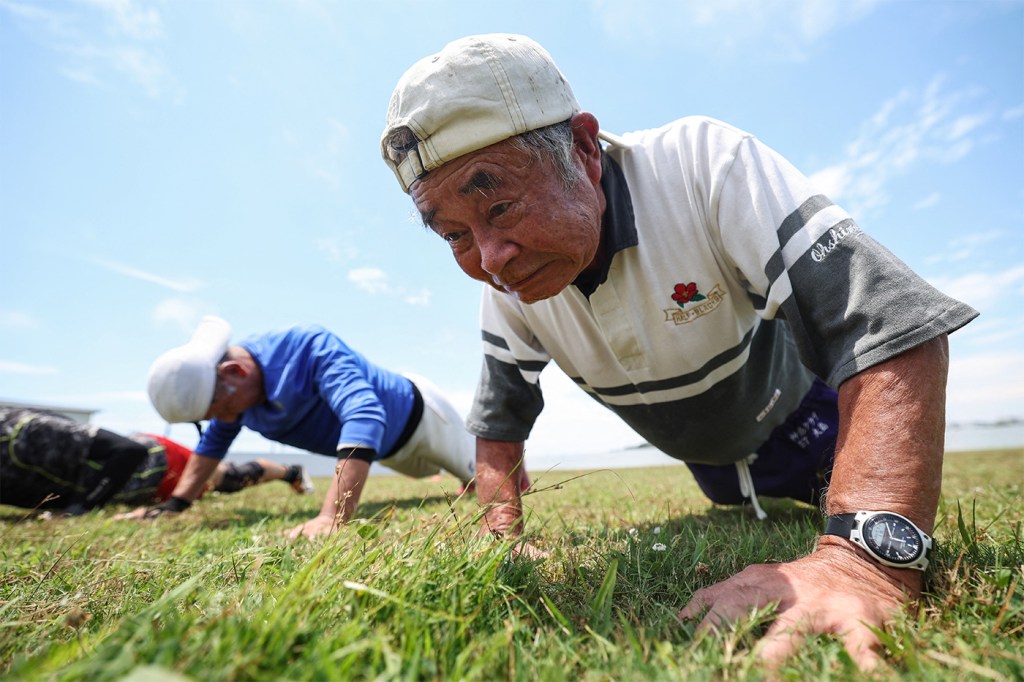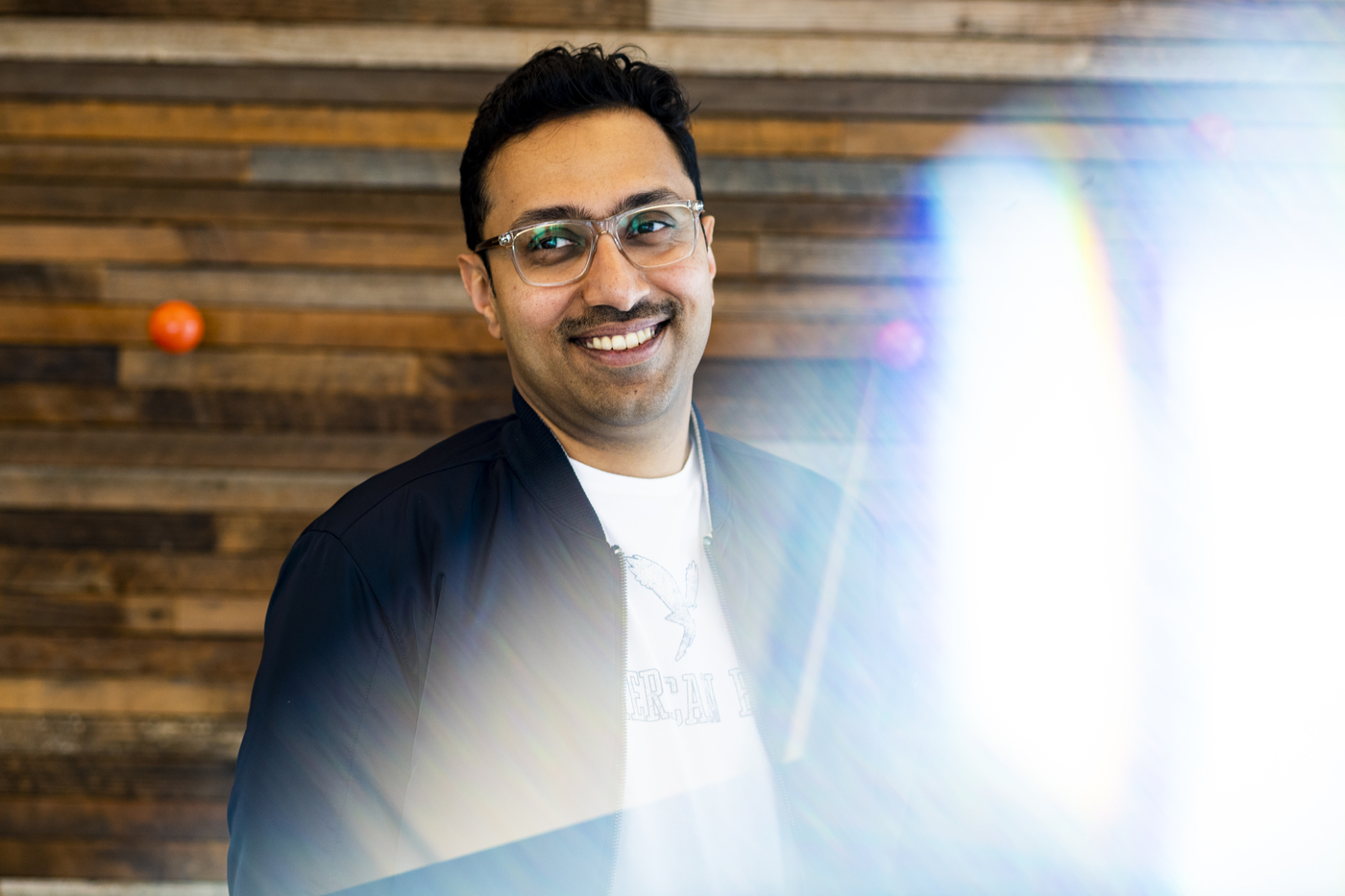From Bryan Johnson to Dave Pascoe, has the longevity movement gone too far?
When it comes to some longevity protocols, Ramkumar Hariharan, a senior scientist at the Institute for Experiential AI, who studies all aspects of human longevity, says the smoke of marketing can overshadow the science.

Health and wellness protocols are everywhere you look online these days. But one of the more intriguing developments in the health and wellness space is the proliferation of “anti-aging” products and regimens — the stuff people can purportedly take, or do, to help them live longer.
The list of therapies and protocols found among a growing number of longevity gurus is extensive, from hyperbaric oxygen therapy, ice baths and other “biohacking” tools, to scrupulously detailed and planned diets and exercise regimens.
Disciples of the longevity movement, such as Bryan Johnson, Dave Pascoe and others, claim to have dramatically slowed down the rate at which they age biologically. There’s even an “epigenetic” scoreboard — the “Rejuvenation Olympics” — powered by Johnson that tracks the largest “age reversals” among a pool of 1,750 people, each engaged in their own anti-aging protocols.
When it comes to the influencer-driven longevity protocols, Ramkumar Hariharan, a senior scientist at the Institute for Experiential AI at Northeastern University who studies all aspects of human longevity, says the smoke of marketing can overshadow the science.
While there are some therapies that have shown promise in the push to extend life, such as rapamycin, there isn’t one diet, protocol or therapy that has delivered the fountain of youth, he says.

As part of research into the aging process, scientists have pointed to epigenetic marks, or alterations to a person’s DNA that suggest accelerated aging. Hariharan says these findings constitute just “one small slice” of the scientific understanding of what drives biological aging — a concept distinct from a person’s chronological age.
“The problem in human clinical trials is precisely this: how do you measure aging?” Hariharan says. “Right now, most researchers in this space are using these biomarkers as a proxy to measure exactly how much your body is breaking down over time. And are these markers causally linked to aging? The answer to that is, we don’t know yet.”
The bottom line, Hariharan says, is that longevity experiments don’t really prove much outside of the lab. Caveats abound. Given that, what can people actually do to potentially extend their lives?
Hariharan says it’s best to keep it simple.
“William Shatner gave an interview recently when he turned 93, and in that interview he talks about four or five things that he attributes his long life to,” Hariharan says.
Shatner’s list, Hariharan says, included the core of what constitutes most doctors’ orders: don’t smoke, consume alcohol sparingly, get enough sleep and exercise regularly, with the addition — often understated in the context of a person’s overall health — of pursuing a passion, or finding pleasure in life. Oh, and good genes can go a long way.
For most people, these recommendations are enough to keep people healthy, he says.
“That kind of beautifully captures it,” Hariharan says. “So the question that people are asking now is, can we go beyond these basic recommendations?”
Dietary dizziness
When it comes to what to eat — and how much — Hariharan stresses there’s no one-size-fits-all diet. Every person has different nutritional needs based on a variety of factors.
Longevity devotees have championed a variety of dietary strategies — from ketogenic, or “keto,” to Mediterranean, to vegan. There’s plenty of research, Hariharan says, that support the idea that there might be some health benefits, generally speaking, from those diets.
But other dietary strategies may come with some risk. Take intermittent fasting, where a person cycles between periods of fasting and eating, sometimes forgoing meals for up to 16 hours. (Johnson follows what’s been described as an extreme intermittent fasting protocol.)
The American Heart Association published a study of 20,000 adults last month that found that individuals who had an eight-hour time-restricted eating schedule — those engaged in intermittent fasting — had a 91% higher risk of death from cardiovascular disease. The study, based on a questionnaire, caused quite a stir among health scientists, not least because of existing evidence that supports the practice.
“All of these diets may come with side effects, just as taking certain drugs can cause side effects,” Hariharan says.
Caloric restriction — does it work?
Hariharan says the chief longevity intervention supported by evidence — at least, as observed in rodents — is calorie restriction. Simply put, calorie restriction is reducing the number of calories consumed on a daily basis, which some studies have shown may help extend lifespan.
Caloric restriction “is supposed to be the gold standard in the anti-aging field,” Hariharan says. But while some studies show that the practice can help individuals with problems managing their weight, the jury is out on whether it has any long-term beneficial effects in people of healthy weight.
Additionally, that caloric restriction has been shown to actually shorten lifespan in some mammals with certain genetic makeups, Hariharan says.
Rapamycin — is it living up to the hype?
Longevity gurus peddle all kinds of supplements, compounds and therapies. Some, however, have been shown to be promising. That includes a drug called rapamycin, which is now being trialed to test its ability to slow aging in human beings. The medication is available by prescription only.
“One of the items that actually has a lot of benefit is rapamycin,” Hariharan says.
“It is a really interesting drug and it’s been shown to extend lifespan across male and female mice — and it may have some effect in humans too,” Hariharan says.
Originally created to treat organ transplant rejection, rapamycin has been repurposed in the longevity movement and — because it has a long history of clinical use — has therefore been shown to be safe, Hariharan says. It has also been used as an anti-cancer drug, as well as to fight autoimmune diseases and other age-related conditions.
“It targets one of the key controllers of aging that we know,” Hariharan says.
What about supplements?
Rejuvenation “athletes” like Johnson and Pascoe are up to their teeth in supplements (Johnson claims to take up to 100, Pascoe 150). While many supplements have been shown to improve some aspects of health, consumers should be wary of taking too many.
“It could be that two things that are not toxic by themselves, when combined, can be really toxic for a person,” Hariharan says. “So these are untested therapies.”
More generally, supplements have been shown to be effective in instances of deficiency, Hariharan says. “When a supplement is given to someone who isn’t deficient in it, the studies are far from conclusive,” he says.
Additionally, some studies have shown an association between high supplement consumption and cancer risk.
“People are taking a giant, giant leap of faith when they are taking a lot of these supplements,” Hariharan says.






